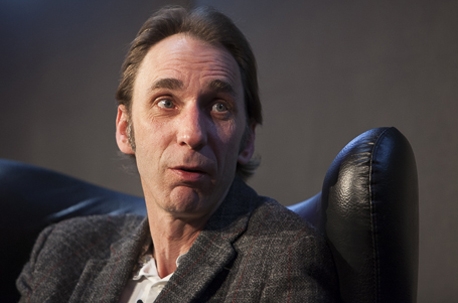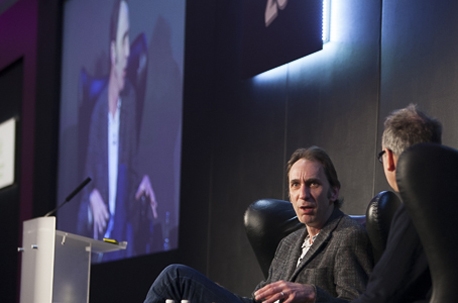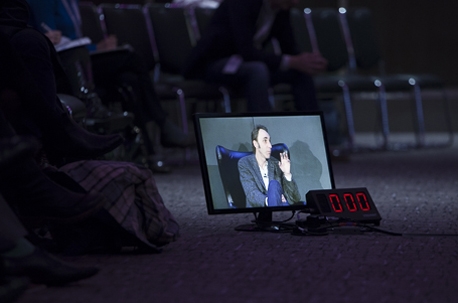NEWS19 March 2014
All MRS websites use cookies to help us improve our services. Any data collected is anonymised. If you continue using this site without accepting cookies you may experience some performance issues. Read about our cookies here.
NEWS19 March 2014
In the keynote interview on day two of the MRS Conference, Will Self explains why he feels among friends in a room full of researchers.

It’s easy to fall victim to to being a passive entity, said Self, describing how people can see interest as passive, as something latent to be provoked. He believes that being interested in everything – at the moment his obsession is fitted carpet – puts people in control of their own engagement.
“The key thing is to realise is at what point you have to stop gathering data, and produce a metric,” said Self, describing his research into topics. There’s a temptation to aim for ‘completeness’, he went on, “but the fact of the matter is that by and large, while behaviour may to a greater or lesser extent be determined, our perceptions are contingent.” Understanding that, Self said, is what makes it possible to put an end to trying to construct a narrative around everything.
Self professed to feeling among friends in a room of researchers, describing himself as a “waterboatman on the meniscus of knowledge”. “Having the capacity to move over the surface allows us to look down and assay depth,” said Self, drawing parallels between his own strengths and the skill of researchers in skipping from discipline to discipline and across categories.

“Where’s the catharsis if purchase is the climax?” asked Self. “The ideal brand narrative is one that encourages consumers to get to the middle and stay there, in a continuous state of narrative.”
Self argued that building a narrative around a brand requires consumers to suspend their disbelief across a series of linked events, “so if they resile from the narrative at any point, it’s game over.” He believes that marketers could learn from the video game industry – consumers are increasingly looking to construct their own narrative.
He also believes that the marketing industry needs to be careful in its use of behavioural economics – it’s all very well to create scientific theories of behaviour, but if the aim of the game is to market to people against their will, this has severe consequences for society.
An audience member asked Self whether he agreed with Bill Hicks’ infamous anti-marketing diatribe, which invited those in the industry to “kill themselves”. Self himself consciously refuses to endorse any products, but willingly markets his own work. So, he says, a way of squaring himself with his behaviour is to encourage marketers to put themselves “existentially, humanly, sympathetically” in the shoes of consumers, through research. “Research can act as a responsible point of communication between consumers and the diabolical motivations of people trying to sell things,” he concluded.

Related Articles
2 Comments
Anon
11 years ago
Meniscus, not miniscus?
Like Reply Report
Brian Tarran
11 years ago
Thanks anon, you're right. We're going to go hang our heads in shame now. Will would not be pleased.
Like Reply Report